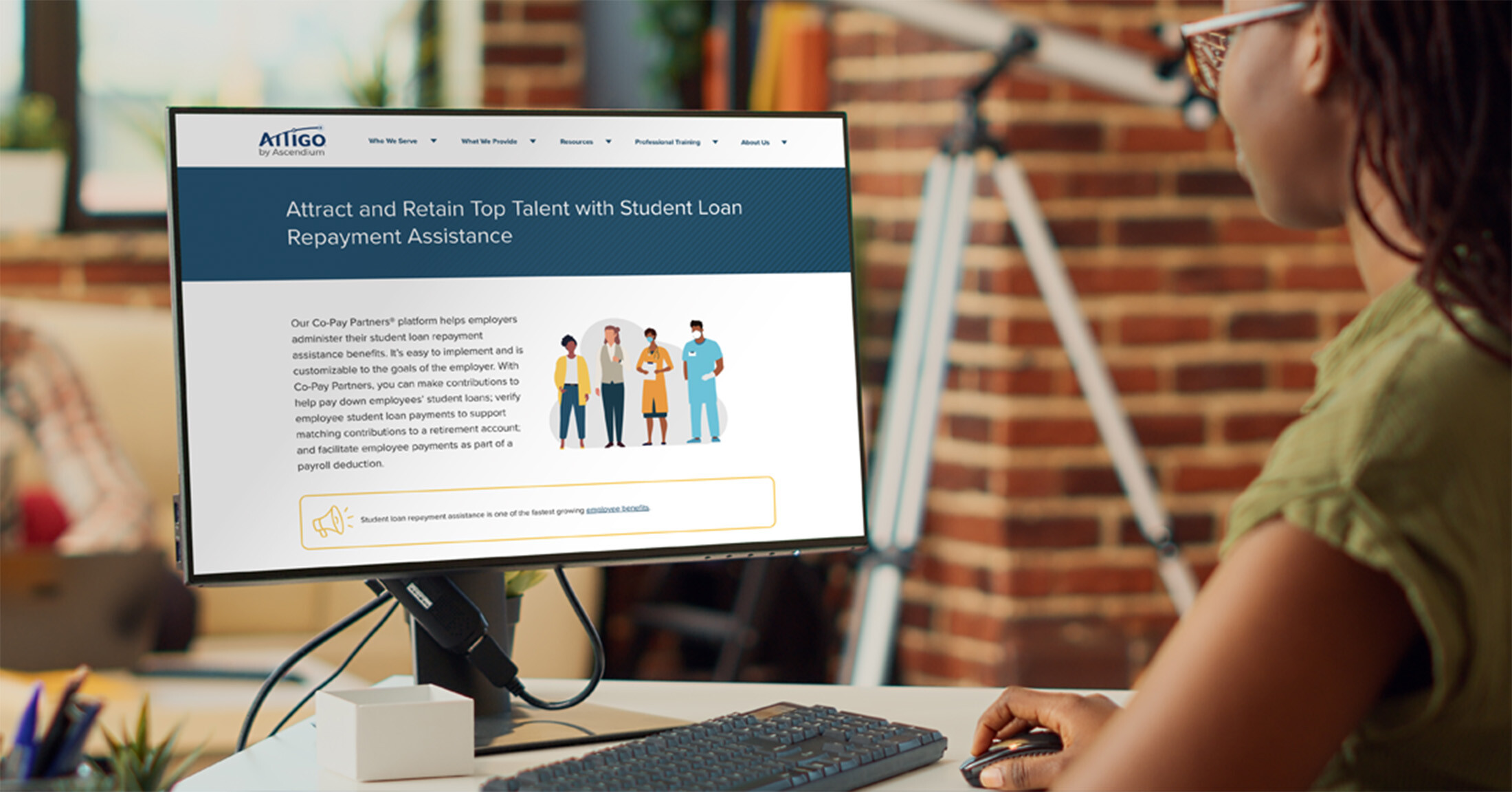Student Loan Debt Adds to Employee Financial and Mental Health Stress

Between the aftermath of the COVID-19 health crisis, inflation, low pay raises, and the October 2023 student loan repayment restart, employees today are more stressed than ever over their finances. It’s become a significant problem for employers to figure out ways to help employees manage their financial stress.
- Over 80% of chief human resource officers and human capital leaders are concerned that wage growth isn’t keeping pace with inflation and is declining consumer purchasing power (Source: PwC).
- About one-third (34%) of employees aged 18-29 report having student debt, as do 22% of those ages 30-44 (Source: Education Data Initiative).
The impact of student debt goes beyond financial strain, significantly affecting borrowers' lives and well-being. Even those meeting monthly payments often make sacrifices such as delaying major life milestones.
- Only 42% of U.S. employees rate their financial health as excellent or good, a 10-year low (Source: Bank of America).
- 81% said student loans delay key life milestones (e.g., saving for retirement, buying a home, etc.) (Source: CNBC).
The burden of student debt also contributes to acute mental health issues, causing prolonged stress, anxiety, and feelings of shame. A 2021 survey revealed alarming rates of suicidal ideation among borrowers, with 1 in 14 experiencing such thoughts due to financial stress from student loans (Source: StudentLoanPlanner).
- 56% spend three hours or more per week at work dealing with or thinking about their personal finance issues (Source: PwC).
Hope is on the Horizon
Employers are discovering they’re in a unique position to provide crucial support to counter the serious impacts student loan debt can have on their workforce — and earn numerous dividends in the process.
- Over 69% of students with student loans said the debt will influence the jobs they’ll consider taking upon graduation (Source: Handshake).
- 88% would increase their commitment to their employer if offered student loan repayment assistance (Source: Ascendium Survey).
By offering student loan repayment benefits, employers can help employees conquer their debt more quickly, reduce their financial stress, and improve workplace productivity and affinity. Benefits come in a variety of forms, yet many employers don’t know what’s available or where to start.
Ascendium is a nationally known student loan expert. As such, we recently updated our Employer’s Guide to Student Loan Repayment Assistance e-book to share how employers can help employees overcome student loan debt challenges. Although there are different options for providing student loan repayment benefits, most fall into two categories.
1) Direct employer contributions (to a student loan or retirement account).
2) Resources to navigate repayment (i.e., personalized counseling, and online tools to educate and enroll in repayment plans and forgiveness programs).
- 68% of employers provide employees with financial wellness benefits like coaching, webinars, and online tools. This is up from 51% in 2012 (Source: PwC).
Regardless of the approach, unique student loan repayment benefits that speak to today’s workers can help you build your talent pool and reach important company goals.
Download The Employer’s Guide to Student Loan Repayment Assistance and get started today!



